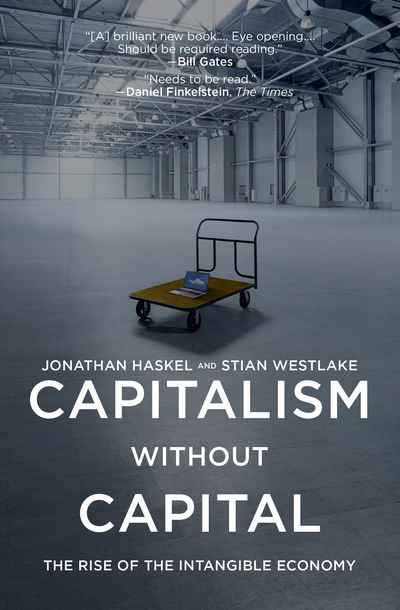Capitalism without Capital: The Rise of the Intangible Economy

Paperback (Trade paperback US) | Jan 2019 | Princeton University Press | 9780691183299 | 296pp | 203x133mm | GEN | AUD$29.99, NZD$34.99
Selected for Askblog's Books of the year 2017, chosen by Arnold Kling
One of Financial Times (FT.com) Best Books of 2017: Economics
One of the Economist.com "Wise Words 2017 Books of the Year" in Economics and Business
One of Blackwell's Best of Non-Fiction 2017
Early in the twenty-first century, a quiet revolution occurred. For the first time, the major developed economies began to invest more in intangible assets, like design, branding, and software, than in tangible assets, like machinery, buildings, and computers. For all sorts of businesses, the ability to deploy assets that one can neither see nor touch is increasingly the main source of long-term success. But this is not just a familiar story of the so-called new economy. Capitalism without Capital shows that the growing importance of intangible assets has also played a role in some of the larger economic changes of the past decade, including the growth in economic inequality and the stagnation of productivity. Jonathan Haskel and Stian Westlake explore the unusual economic characteristics of intangible investment and discuss how an economy rich in intangibles is fundamentally different from one based on tangibles. Capitalism without Capital concludes by outlining how managers, investors, and policymakers can exploit the characteristics of an intangible age to grow their businesses, portfolios, and economies.
'Compelling…Haskel and Westlake have mapped the economics of a challenging new economy.' — Martin Wolf, Financial Times
'One of this year's most important and stimulating economic reads….Read this book.' — Tyler Cowen, Marginal Revolution
'For an introduction…it would be hard to do better than Capitalism without Capital, which is clear and lively and raises — without having all the answers — the relevant questions.' — Diane Coyle, Enlightened Economist
'The book makes its case in a lighthearted, conversational way that will appeal to economists and non-economists alike.' — The Economist
'One of the year's most talked-about books.' — John Harris, The Guardian
